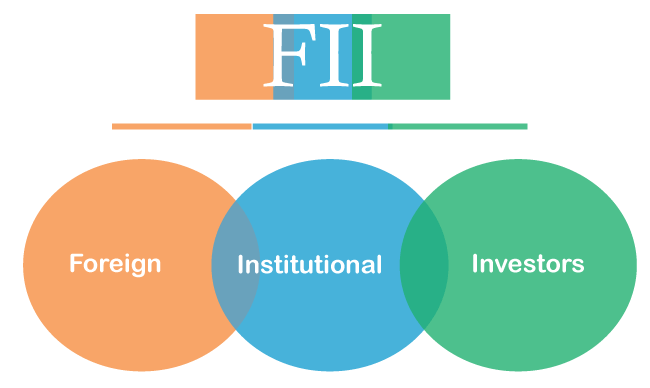Difference Between FDI and FII
What is FDI?
Foreign Direct Investment (FDI) is an investment made by a company or individual from a country into a business or company of another country. FDI is a type of international investment that involves the transfer of capital from one country to another and an abiding interest in the foreign entity. The investor usually establishes a business presence in a foreign country.

FDI aims to expand the investor's business interests, increase profits, and gain access to new markets. FDI can be a form of financial investment, such as purchasing shares in a foreign company. It can be the direct investment in a business entity by constructing or acquiring physical assets such as factories, plants, or warehouses. FDI involves the creation of economic links between two countries, enabling the transfer of goods, services, technology, and knowledge.
FDI can be an essential source of economic growth, providing foreign capital and technology to developing countries and emerging markets and job opportunities. FDI can also strengthen the host country's export capabilities and help increase the country's GDP. FDI also brings in new ideas, technology, and management skills that can help the local economy and enhance its competitiveness.
On the other hand, FDI can have some drawbacks, such as crowding out local businesses, transferring ownership, and needing more local control. As a result, it is essential for the host country to carefully consider the potential benefits and drawbacks of FDI before allowing it to take place.
Overall, FDI is a form of international investment that can bring about economic growth and development. Still, it is crucial for the host country to carefully consider the potential benefits and drawbacks before allowing it to take place. FDI can help create jobs, increase profits, open new markets, and bring new technology and ideas. FDI does have some disadvantages, though, such as the displacement of regional companies and management changes. Therefore, the host nation should consider the advantages and disadvantages before permitting FDI.
What is FII?
FII or Foreign Institutional Investors are large financial institutions from other countries that invest outside the nation where their headquarters are situated. This includes mutual funds, hedge funds, pension funds, insurance companies. The investments made by FII in the Indian stock markets are regulated by the Securities and Exchange Board of India (SEBI).

FII investments are essential for the Indian economy because they bring in foreign capital, which helps to increase liquidity in the Indian stock markets and promote economic growth. FII investments also provide Indian companies with access to global capital and international markets, allowing them to expand their operations and access new opportunities. FII investments are, however, with their risks. FII investments are more volatile than other investments, and their price movements can be unpredictable. They are also subject to foreign exchange risks, as the value of their investments can be affected by changes in the exchange rate. Moreover, FII investments are subject to foreign tax laws and regulations, meaning that Indian companies may have to pay taxes on their FII investments.
Despite these risks, FII investments benefit the Indian economy and offer many advantages. For example, FII investments bring foreign capital to the Indian stock markets, which helps to increase liquidity and promote economic growth. FII investments also provide Indian companies with access to global capital and international markets, allowing them to expand their operations and access new opportunities.
Overall, FII investments are crucial for the Indian economy because they bring in foreign money, boost stock market liquidity, and give Indian businesses access to global capital and marketplaces. These assets should, however, be carefully considered and tracked as they are prone to risk.
How FDI and FII are Important for the Market?
The two main types of foreign investment for markets are Foreign Direct Investment (FDI) and Foreign Institutional Investment (FII). FDI and FII can significantly impact a nation's economies and financial marketplaces.

- One of the primary benefits of FDI and FII is that they provide capital to a country's economy. This capital can be used to finance the expansion and growth of companies, as well as to purchase goods and services. This influx of money can help to stimulate the economy and create jobs. Additionally, FDI and FII can provide the country access to new technology, knowledge, and foreign markets.
- FDI and FII also help to increase the liquidity of a market. This is because they bring capital into a market, increasing the number of buyers and sellers, thus increasing the market's liquidity. This increases the efficiency of the market, as it allows transactions to be completed more quickly and at more competitive prices.
- FDI and FII can also attract more foreign investors into a market. This is because foreign investors are more likely to invest in markets that have more liquid and efficient markets. This increased foreign investment can increase economic growth as foreign investors bring capital, technology, and knowledge to the market.
- FDI and FII can create an environment of greater confidence and stability in a market. Foreign investors are seen as more reliable and trustworthy than domestic investors; thus, their presence can help attract other investors. This increased confidence and stability can boost economic growth as markets become more attractive to investors.
- Overall, FDI and FII are important for markets as they provide capital, technology, and knowledge, increase liquidity and efficiency, attract more foreign investors, and create an environment of greater confidence and stability. These factors can then lead to increased economic growth, which benefits a country as a whole.
Factors Affecting FDI and FII?
The factors affecting FDI and FII are numerous and can be broadly classified into Macroeconomic and Microeconomic factors.
- Macroeconomic Factors: Macroeconomic factors are factors related to a country's overall economic environment, such as the economic growth rate, inflation rate, exchange rate, fiscal and monetary policies, and political stability. These factors have a direct effect on the level of FDI and FII that a country receives. For instance, foreign investors are likely to be more inclined to invest in a country with a stable economy, a low inflation rate, a favourable exchange rate, and a pro-business government. Similarly, if a country has a high inflation rate, volatile exchange rate, and unstable political environment, foreign investors may be discouraged from investing in that country. Thus, macroeconomic factors are essential in influencing the level of FDI and FII that a country receives.
- Microeconomic Factors: Microeconomic factors, on the other hand, are related to the specific business environment of a particular country. These factors include the availability of resources, the quality of infrastructure, the cost of labour, the regulatory framework, and the ease of doing business. All these factors affect the attractiveness of a country to foreign investors. For instance, foreign investors will likely be more inclined to invest there if a country has a good infrastructure, a competitive labour cost, and a business-friendly regulatory framework. Similarly, foreign investors may be discouraged from investing there if a country needs more infrastructure, a high labour cost, and a complex and restrictive regulatory framework. Thus, microeconomic factors are essential in influencing the level of FDI and FII that a country receives.
Macroeconomic and Microeconomic significantly influence a country's FDI and FII. To draw in foreign investment, a government must keep a stable macroeconomic atmosphere and a microeconomic climate conducive to business.

Differences Between FDI and FII
| FDI |
FII |
| 1. FDI refers to long-term direct investment by foreign entities into domestic companies or entities. FDI can be made by establishing a new business entity in the host country, acquiring an existing business, or investing in a joint venture. FDI is generally made to control the operations and management of a company or entity and participate in the business's long-term growth. |
1. Foreign Institutional Investment (FII) refers to the investments made by foreign institutional investors into the securities of domestic companies. FII is a short-term investment made by foreign investors in the form of equity and debt securities. FII is usually made to profit from short-term price movements in the protection, trading in derivatives, and hedging against market risks. |
| 2. The primary difference between FDI and FII is that FDI involves direct business ownership. |
2. FII involves ownership of securities such as stocks, bonds, and derivatives. |
| 3. Another key difference is that FDI has a long-term investment horizon. |
3. FII is usually short-term investment horizon. |
| 4. FDI is generally more beneficial for the host country as it involves direct business ownership and can bring long-term growth and capital to the country. |
4. FII, on the other hand, is beneficial to foreign investors as it provides the opportunity to make short-term profits. |
| 5. FDI is also helpful for the host country regarding job creation, transfer of technology and expertise, and improving the country's infrastructure. |
5. FII also has the potential to benefit the host country by increasing liquidity and the depth of the domestic capital markets. However, FII may be less beneficial to the host country regarding long-term capital growth. |
| 6. Regarding regulation, FDI is usually subject to more stringent rules and regulations than FII. FDI is regulated by the host country's laws and regulations, which may include restrictions on the type of investment, sector, and ownership structure. |
6. FII, on the other hand, is regulated by the respective stock exchanges, which may have their own set of rules and regulations for foreign investors. |
|




 For Videos Join Our Youtube Channel: Join Now
For Videos Join Our Youtube Channel: Join Now









